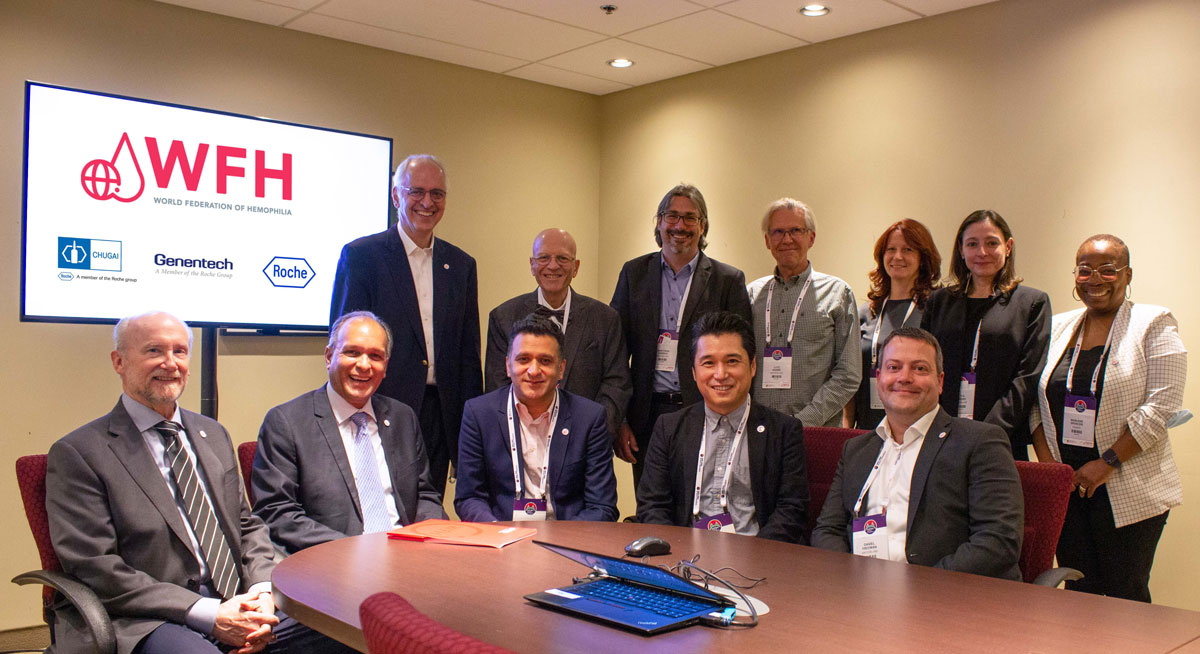The donated non-factor replacement therapy will be used by the WFH Humanitarian Aid Program to continue to treat as many as 1,000 people with hemophilia A in countries where there is little or no access to treatment. The partnership between Roche and the WFH began in 2019 and was a milestone because it marked the first time that patients in developing countries had received access to non-factor replacement therapy. The donated treatment has since benefited more than 940 people across 30 countries.
“Our renewed commitment will allow us to continue to help people with haemophilia A most in need,” said Bill Anderson, CEO Roche Pharmaceuticals. “We are proud to be recognised by the WFH as a Visionary Contributor of the Program and are delighted to announce that our commitment to the WFH Humanitarian Aid Program has been extended until 2028.”
Cesar Garrido, WFH President, also praised Roche for extending their commitment to the global bleeding disorders community. “Last year was a record year for the WFH Humanitarian Aid Program, which continues to make life-changing treatment accessible for those who need it most,” he said. “With Roche’s continued support, we will be able to continue the important work that the Humanitarian Aid Program does, giving people with bleeding disorders the hope of leading a normal life through prophylactic treatment.”
From the WFH, Cesar Garrido, President; Eric Stolte, WFH USA President, Alain Baumann, CEO; Assad E. Haffar, MD, Medical & Humanitarian Aid Director; were present to officially sign the agreement. From the Roche team, Iqbal Mufti, Martynas Aizenas, Lutz Knabe, Tuende Czirok, Dan Freeman, Katya Moreno and Kentaro Kishi (Chugai) were present.
About the WFH Humanitarian Aid Program
The WFH Humanitarian Aid Program improves the lack of access to care and treatment by providing much-needed support for people with inherited bleeding disorders in developing countries. By providing patients with a more predictable and sustainable flow of humanitarian aid donations, the WFH Humanitarian Aid Program makes it possible for patients to receive consistent and reliable access to treatment and care. None of this would be possible without the generous support of Sanofi and Sobi, our Founding Visionary Contributors; Bayer, CSL Behring and Roche, our Visionary Contributors; Grifols, our Leadership Contributor; and Takeda, our Contributor. To learn more about the WFH Humanitarian Aid Program, visit www.treatmentforall.org













